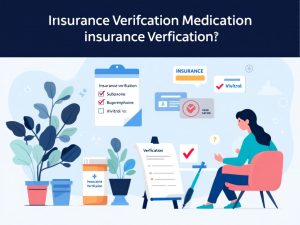Bipolar disorder treatment can ease the unpredictable mood swings and profound emotional challenges you may experience, allowing you or a loved one to regain stability and navigate everyday life with greater confidence. At Epic Health Partners, we understand how critical it is to feel supported every step of the way. By tailoring our programs to your unique challenges, we strive to deliver a comprehensive approach to care that addresses both the symptoms of bipolar disorder and any co-occurring conditions. You are never alone on this path—our supportive environment is here to provide the empathy, hope, and specialized services necessary for lasting recovery.
Explore bipolar disorder basics
Bipolar disorder is a condition characterized by episodes of mania (or hypomania) and depression that can vary in intensity. These shifts, which may happen over days, weeks, or even months, often make it difficult to maintain a regular routine. According to research, the lifetime prevalence of bipolar disorder can include as many as 1% of adults diagnosed with bipolar I, and a significant portion of individuals also struggle with comorbid conditions such as anxiety or substance misuse (NCBI Bookshelf).
Understanding bipolar disorder means recognizing that it exists on a spectrum. You might experience predominantly depressive episodes, or you could have frequent manic episodes followed by shorter periods of calm. Often, people with bipolar disorder show rapid cycling, with faster switches between mood states—yet current evidence suggests that the same interventions generally apply regardless of whether you have rapid cycling or more gradual mood shifts (NCBI Bookshelf). The key is to find a plan that fits your specific situation.
- Bipolar I Disorder: Characterized by pronounced manic episodes that can last a week or more, often requiring medical intervention. Depressive episodes usually follow or precede these manic phases.
- Bipolar II Disorder: Involves milder manic symptoms (hypomania) alongside significant depressive episodes. Many people with bipolar II may initially seek help during depressive phases.
- Cyclothymic Disorder: Entails numerous shifts between mild hypomanic symptoms and mild depressive symptoms without the full-blown manic or severe depressive episodes of bipolar I or II.
At Epic Health Partners, we appreciate how overwhelming these episodes can feel. Our goal is to help you build a foundation of stability through personalized, evidence-based practices. We strive to empower you to manage your symptoms so that you can reclaim control over your day-to-day life.
Recognize key symptoms and triggers
Detecting symptoms early can help you connect with treatment in time to prevent or reduce severe mood episodes. Everyone’s experience is different, but some of the most common symptoms include:
Mood swings and mania
Mania can involve feelings of euphoria, heightened energy, restlessness, and racing thoughts. During a manic phase, you might speak rapidly, take on multiple projects at once, or engage in impulsive decision-making. In its more severe form, mania can significantly alter your sense of reality, sometimes requiring hospitalization to maintain safety.
Certain triggers, such as lack of sleep or excessive stress, can worsen manic symptoms. Research reveals that individuals with bipolar disorder are particularly sensitive to disruptions in sleep patterns or daily routines (Healthline). Establishing healthy sleep habits and taking on manageable tasks can reduce the risk of shifting into a higher-intensity mood episode.
Depression phases and co-occurring issues
During depressive episodes, you may experience persistent sadness, low energy, difficulty concentrating, changes in appetite, or a loss of interest in once-enjoyable activities. These can occur frequently enough to disrupt work, family commitments, and social relationships. If left untreated, the loss of motivation can deepen, leading to feelings of hopelessness.
People with bipolar disorder sometimes turn to substances as a coping mechanism, resulting in co-occurring conditions that further complicate diagnosis and recovery. For instance, some individuals may rely on alcohol or other substances to balance their moods, yet these coping strategies often exacerbate underlying symptoms. Co-occurring disorders require comprehensive care that integrates both mental health and substance use support, something Epic Health Partners can address through services such as co occurring disorders treatment and substance use outpatient therapy.
Understand core treatment approaches
Effective bipolar disorder management generally involves a combination of medications, psychotherapy, and lifestyle modifications. Because each person experiences distinctive triggers and patterns, successful treatment typically requires customizing interventions to align with your life circumstances.
Medication options
Pharmacotherapy remains a cornerstone of bipolar disorder management. Mood stabilizers, antipsychotics, and antidepressants are commonly used to keep episodes in check. Lithium, a mood-stabilizing drug, has been prescribed since the 1970s and can help reduce manic and depressive symptoms (Healthline). However, medication efficacy and side effects vary widely. It could take time to find the right balance, and you might need periodic adjustments in dosage.
- Mood Stabilizers: Aim to even out manic highs and depressive lows.
- Antipsychotics: Often used when mania or depressive symptoms include psychosis-like features.
- Antidepressants: Can alleviate severe depressive symptoms but must be monitored carefully, as some may trigger mania in certain individuals.
- Alternative Supplements: Nutritional options like omega-3 fatty acids or N-acetylcysteine show promise but are not conclusive stand-alone treatments and should complement, not replace, prescribed medication (Healthline).
At Epic Health Partners, we also understand the importance of monitoring medication adherence. Stopping medication prematurely or missing doses can destabilize progress, leading to relapse. Our medication management service helps you stay on track by providing regular follow-up, dosage evaluations, and ongoing support.
Psychotherapeutic strategies
Psychotherapy plays a vital part in bipolar disorder treatment, helping you recognize unhelpful thought patterns, improve mood regulation, and manage stress more effectively. Evidence-based therapies often used in bipolar care include:
- Cognitive Behavioral Therapy (CBT): Focuses on identifying and transforming negative thoughts and behaviors. Research shows that CBT may hasten time to remission and help individuals better adhere to medication regimens (Archives of Neuropsychiatry).
- Family-Focused Therapy (FFT): Addresses the family dynamic and how it impacts your emotional stability. By cultivating mutual support and understanding within the household, FFT can reduce relapse rates (NCBI).
- Interpersonal and Social Rhythm Therapy (IPSRT): Aims to regulate daily routines and social interactions. Maintaining stable rhythms is crucial, as changes in sleep or social engagement can precipitate mania or depression (NCBI).
Integrated mental health services
Because bipolar disorder often includes additional complexities, many individuals benefit from a robust network of services. Working closely with psychiatrists, psychologists, therapists, and case managers helps keep communication clear and goals aligned. You might benefit from:
- Psychiatric evaluation outpatient: To start with a comprehensive assessment of your mental health status.
- Cognitive behavioral therapy cbt: For structured guidance in reframing negative emotions and behaviors.
- Group therapy mental health: Sharing experiences with peers who face similar challenges can alleviate isolation and deepen motivation to maintain progress.
- Family counseling mental health: Involving loved ones in a safe space can foster better communication and shared understanding.
- Dual diagnosis treatment: If you contend with substance use or another mental health condition alongside bipolar disorder, specialized dual-diagnosis programs can provide truly individualized plans.
Discover Epic Health Partners’ support
Epic Health Partners is committed to delivering comprehensive care that recognizes your holistic needs. Our approach integrates trusted clinical guidelines with a nurturing environment—ensuring you receive the tailored treatment programs that empower you to manage bipolar disorder effectively. From the very first consultation, our team devotes time to understand your goals, overall health, and emotional history.
Emphasizing a supportive environment
We believe that lasting change emerges when you feel understood, respected, and validated. Epic Health Partners offers:
- Individualized plans: We customize therapy and medication protocols to your personal health status, ensuring each intervention is purposeful and targeted.
- Compassionate care: Our staff is trained to deliver empathy alongside technical expertise, providing the support necessary for lasting recovery.
- Continuity of services: With options such as telehealth therapy services and telepsychiatry services, you can maintain consistent treatment even when in-person visits are not feasible.
Moreover, if you face a crisis situation, our comprehensive crisis services and suicide crisis intervention are here to offer urgent support. We recognize that bipolar disorder can escalate quickly, making a reliable safety net essential.
Coordinated outpatient care
Outpatient programs suit many individuals who seek effective bipolar disorder treatment while continuing with work, family, and community responsibilities. Epic Health Partners provides various outpatient levels of care, such as:
- Intensive outpatient program iop: Furnishes structured sessions multiple times a week, ideal if you need steady guidance beyond a standard outpatient schedule.
- Partial hospitalization program php: Delivers intensive daytime care while letting you return home afterward. This option can be an effective alternative to inpatient hospitalization for individuals who need enhanced support.
- Medication assisted treatment mat: A staple for individuals who also cope with substance use disorders, ensuring that your mood management and recovery from substances go hand in hand.
When bipolar disorder coexists with substance use, research underscores the necessity of simultaneous treatment for both conditions (NCBI Bookshelf). Our integration of mental health and substance use programs, including outpatient drug counseling and alcohol counseling outpatient, addresses all aspects of your well-being.
Holistic wellness and peer support
Because bipolar disorder encompasses emotional, mental, and physical dimensions, Epic Health Partners extends beyond standard counseling and medication prescriptions. Holistic support may include:
- Lifestyle coaching: Guidance on healthy eating, sleeping, and exercise regimens specifically tailored to keep mood fluctuations in check.
- Relaxation techniques: Training in mindfulness or meditation to alleviate anxiety and maintain emotional balance.
- Complementary therapies: Offerings like yoga art therapy music therapy can be integrated into your program, providing a creative outlet.
- Peer support groups: If you thrive in community-based settings, peer support groups give you an opportunity to share experiences and learn from others on a similar path.
Our goal is to ensure that you feel genuinely cared for at every level. We encourage open communication, so you have a voice in determining the services that fit best with your preferences and needs.
Adopt healthy daily routines
Medication and therapy alone might not entirely stabilize bipolar disorder if you do not adopt certain life-affirming habits. Incorporating self-care strategies can enhance your resilience, turning each day into a proactive step toward stability and growth.
Establish regular sleep patterns
Insufficient or inconsistent sleep is a common trigger for mood episodes, especially for people with bipolar disorder (WebMD). If you struggle with insomnia or routine disruptions, you could explore forms of talk therapy that specifically address insomnia, possibly within a CBT framework. By creating a bedtime routine and cutting down on stimulants like caffeine, you set the stage for more restorative sleep, which can help regulate your mood.
Embrace structured exercise
Physical activity has shown promise in easing depressive symptoms, though moderation is key because overly intense routines can sometimes exacerbate manic symptoms (WebMD). From mild aerobic exercises to yoga sessions, consistent, manageable movement can improve your sense of well-being. Consider scheduling short walks or light workouts during the day, without pushing yourself to the point of exhaustion.
Manage stress effectively
Because stress is often a factor in triggering episodes, it is important to become proactive about managing external pressures. You can try:
- Planning your day: Set smaller goals and break tasks into manageable chunks, reducing overwhelm.
- Setting boundaries: Learn to say “no” when demands become excessive, placing self-care at the forefront.
- Practicing mindfulness: Techniques like deep breathing or guided visualization can center your thoughts and promote calm.
- Using your support network: Family members, close friends, or vocational counselors can offer assistance if you find yourself juggling too many responsibilities.
Developing a strong support system also involves professionals who understand your journey. Appointments for individual therapy mental health or family counseling mental health can give you a safe place to discuss not only your goals but also the daily stressors you face.
Maintain consistent medication and therapy
Simple forgetfulness or the temptation to discontinue medication when you feel better can undermine months of progress. Avoid abrupt changes to medication without consulting your healthcare provider, as sudden cessation can lead to relapse. In addition, open communication with your therapist fosters an environment where you can reassess treatment strategies over time. If you prefer flexible access to appointments, consider our virtual psychiatric evaluations as a convenient option to maintain continuous care.
Build accountability and community
Whether through in-person or virtual connections, forming an accountability system can help you stay on track. Stress and mood fluctuations can be contagious in an unstructured environment, but consistent check-ins with a professional or a trusted friend can help you catch early signs of relapse. Consider joining a group setting, like a class offered by our addiction recovery education program if you face co-occurring addictions, or a peer support groups meeting if you are looking to connect with others who understand the reality of frequent mood transitions.
Explore frequently asked questions
Below are five FAQs that we often encounter from people seeking clarity on bipolar disorder and the journey toward recovery. These responses are general guidelines. For personalized answers, we encourage you to reach out to us at Epic Health Partners directly.
-
What are the signs of bipolar disorder?
Signs typically include distinct episodes of mania (or hypomania) and depression. Mania may present as elevated energy, reduced need for sleep, impulsivity, or racing thoughts. Depressive phases often involve persistent sadness, fatigue, changes in appetite, hopelessness, or withdrawal from regular activities. If you recognize these symptoms in yourself or a loved one, consulting a mental health professional for a thorough assessment is advisable. -
Is medication always required for bipolar disorder?
Medication is often considered a cornerstone of bipolar disorder management, but every individual’s treatment plan may differ. While some do well with mood stabilizers or antipsychotics alone, others might need a combination of therapies. Medication must be carefully monitored, as certain drugs can trigger mania or produce side effects that require intervention. Typically, healthcare providers combine medication with psychotherapy to enhance overall stability. -
How can family members help someone diagnosed with bipolar disorder?
Family can provide invaluable support by educating themselves about the condition and recognizing early warning signs of mood shifts. Empathy and patience go a long way—listening without judgment can encourage open communication. Family-focused therapy is another useful tool, giving everyone a chance to learn effective coping strategies and improve communication dynamics. -
Does insurance cover bipolar disorder treatment at Epic Health Partners?
Many insurance plans offer benefits that include mental health services, ranging from diagnosis to therapy sessions and medication oversight. Coverage depends on the specifics of each policy. We suggest contacting your provider or speaking with our team at Epic Health Partners to clarify your specific insurance options. If needed, we can guide you through financial arrangements to help ensure your care remains affordable. -
What if I have co-occurring substance use challenges?
Co-occurring disorders, such as bipolar disorder combined with substance use challenges, can complicate recovery. However, integrated programs like our co occurring disorders treatment and substance use outpatient therapy address both conditions simultaneously. This approach acknowledges that mental health and substance use are interconnected—and that tackling them together yields better, more lasting outcomes.
Effective bipolar disorder treatment relies on a combination of expert clinical interventions, supportive communities, and self-driven lifestyle changes. At Epic Health Partners, we prioritize your unique challenges and offer resources that guide you toward resilience in every phase of recovery. By building a structured, empathetic environment, we aim to give you the tools for a more stable and fulfilling life. You deserve comprehensive care that not only respects the seriousness of bipolar disorder but also highlights the real possibility of hope and healing.
If you have questions about our process or wish to begin a personalized treatment plan, consider scheduling a psychiatric evaluation outpatient. We are here to ensure that you receive the support necessary for lasting recovery—every step of the way. Remember, you are not alone. Reach out today and discover a compassionate, tailored approach to managing bipolar disorder with Epic Health Partners at your side.







